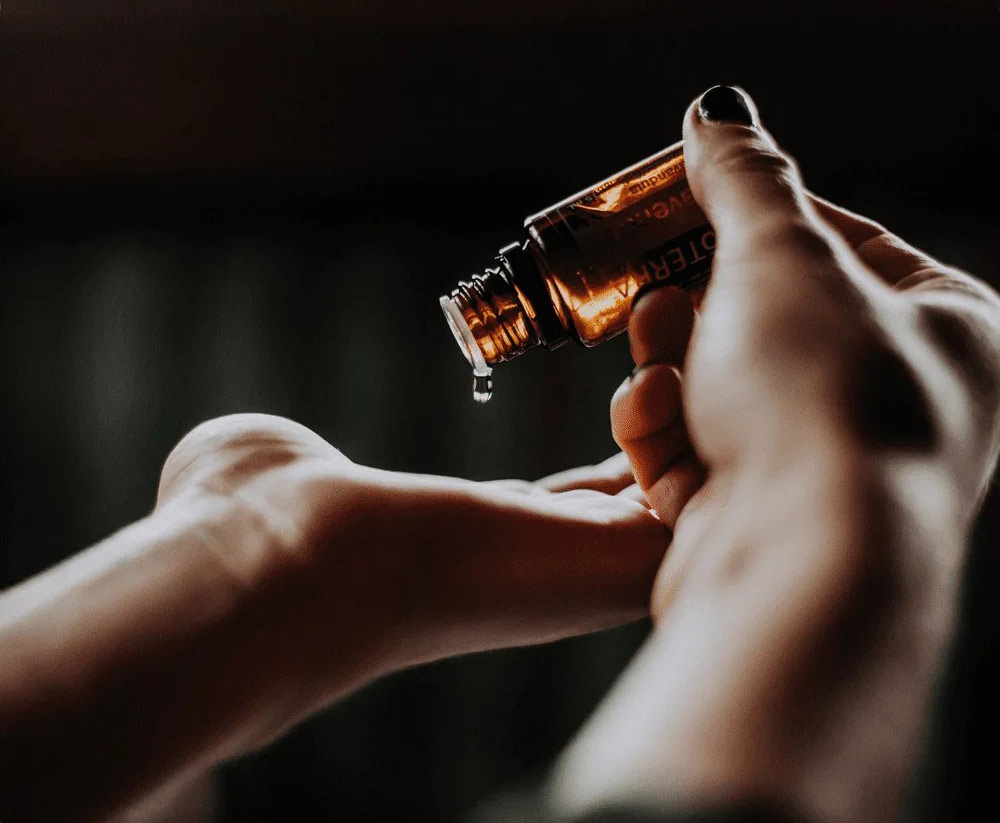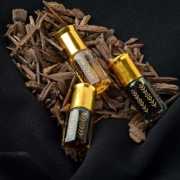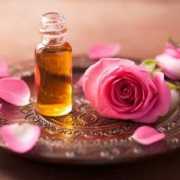Can You Use Essential Oils on Skin as Perfume?
Essential oils have been prized from ancient civilizations to modern-day wellness enthusiasts for their aromatic properties and therapeutic benefits. By harnessing the natural scents of essential oils, you can create personalized perfumes that capture your unique essence. Whether you desire a floral bouquet, a refreshing citrus blend, or a grounding earthy aroma, essential oils offer a versatile range of fragrances to choose from. Not only do essential oils provide an alluring scent, but they also offer various therapeutic benefits for your skin. They can help alleviate acne, moisturize dry skin, fade scars, and even promote relaxation and reduce stress.
In this guide, we’ll explore the world of essential oils and show you how to turn them into signature perfumes that not only smell incredible but also nourish and rejuvenate your skin. So, keep on reading till the end.
Table of contents
-
Understanding the power of essential oils
-
Benefits of using essential oils as perfumes
-
Understanding different types of essential oils
-
Choosing the right essential oils for your skin type
-
How to properly apply essential oils as perfumes
-
Safety precautions when using essential oils on the skin
-
Essential oil perfume alternatives for sensitive skin
-
Where to buy high-quality essential oils
Understanding the power of essential oils
Essential oils are highly concentrated compounds extracted from plants using various methods such as distillation (steam and water) and cold pressing. The oils contain the plant’s flavor and scent known as “natural essence”. Each essential oil holds distinct therapeutic properties depending on the plant from which it is extracted. Due to the presence of unique aromatic compounds, each essential oil has its own characteristic essence that possesses distinct fragrances and benefits.
Benefits of using essential oils as perfumes
Essential oils offer a range of benefits when used as perfumes. First of all, they give natural scents without synthetic additives, which are associated with many health concerns today. Most essential oils also have several therapeutic properties, such as energizing and calming effects, that can help promote relaxation and reduce stress.
The phytochemical (plant chemical) compounds in essential oils can interact with the human body in numerous ways. When applied to the skin, some compounds are absorbed. Certain essential oils can help moisturize dry skin and fade scars. Studies suggest that certain essential oils have significant anti-inflammatory and antimicrobial effects that can help alleviate symptoms of acne vulgaris.
In addition, when used as perfumes, the aromatic molecules of essential oils can help stimulate the limbic system. The limbic system is a part of the brain that plays an essential role in maintaining your sense of smell, behavior, emotions, and long-term memory. The limbic system is also associated with managing critical unconscious bodily functions such as blood pressure, breathing, and heart rate. In other words, essential oils can benefit both physical and emotional health.
Understanding different types of essential oils
Each essential oil has its unique scent and potential benefits.
Here’s a list of some of the most popular essential oils and the potential benefits associated with them:
- Lavender oil – helps relieve stress and anxiety with its tremendous calming effects.
- Peppermint oil – helps boost energy levels with its well-known energizing effects.
- Bergamot oil – helps improve skin conditions such as acne and eczema.
- Sandalwood oil – helps to calm nerves and improves concentration or focus.
- Chamomile oil – helps improve relaxation and mood.
- Rose oil – helps reduce anxiety, stress, and irritability and improves mood.
- Jasmine oil – helps improve symptoms of depression and also helps with libido and childbirth.
- Ylang-ylang oil – helps to treat skin conditions, nausea, headaches, and migraines.
- Lemon oil – helps improve mood and relieves headaches.
Choosing the right essential oils for your skin type
When it comes to using essential oils as perfumes, one of the most appealing aspects is choosing them as per your preference and your skin’s chemistry. No matter whether your skin is oily, dry, or sensitive, essential oils have a range to offer.
If you have oily skin, experts suggest using oils rich in linoleic acid, an omega-6 fatty acid that provides quick-absorbing moisture without greasiness. Examples include evening primrose oil, rosehip oil, and grapeseed oil. Astringent oils, such as cypress, geranium, and grapefruit, help reduce excess oil and restore balance.
If you have dry skin, the good news is that almost any type of oil can benefit your skin type. Most essential oils are densely packed with much-needed moisture. Some skin-healing oils, such as rosewood and neroli essential oils, can hugely benefit your parched skin.
However, you can use a single essential oil perfume or blend several essential oils to customize scents that suit your individual preferences and body chemistry. This customization will help you create unique fragrance combinations that can add a personal touch to your olfactory experiences and reflect your mood and personality.
Here you can see our Perfume Making Kit: Design Your Own Custom-Tailored Perfume
How to properly apply essential oils as perfumes
Appropriate dilution with carrier oils is the key to getting the benefits of essential oils as perfumes. You will need to mix a few drops of essential oils with a proper amount of carrier oil to create your personalized scent that can adhere well to your skin type. Experts suggest that applying essential oil perfumes to pulse points such as the neck, wrists, and behind the ears helps optimal diffusion and absorption throughout the day.
Safety precautions when using essential oils on the skin
While essential oils offer a range of natural perfume options, it’s important to know how to use them safely. Undiluted essential oils may trigger allergic reactions or skin irritation, particularly in individuals with sensitive skin. Diluting essential oils with carrier oils such as coconut or olive oil is crucial before directly applying them to the skin. This helps minimize the risk of adverse effects.
Essential oil perfume alternatives for sensitive skin
For people with sensitive skin, figuring out which essential oil is safe is a bit tricky. Experts recommend avoiding highly acidic essential oils such as lemon and lemongrass. Lavender, sandalwood, and frankincense essential oils are generally considered safe for sensitive skin. If you want to avoid essential oils altogether, floral waters such as orange blossom water and rose water can be some alternatives. Finally, conducting a small patch test is a great idea to assess your skin sensitivity.
Where to buy high-quality essential oils
When buying essential oils for perfume use, it’s crucial to prioritize purity and quality. Look for pure, natural essential oils that are free from chemical additives and contaminants and extracted through distillation or cold pressing.
At our company, La Via Del Profumo, we sell top-quality pure essential oils, the same that we use to compose our premium perfumes, already diluted in alcohol. We call this line PerfumeTherapy
Here you can read our guarantee of naturality.
Conclusion
You can indeed use essential oils on the skin as perfume. It’s a natural and customizable alternative to traditional synthetic fragrances. Embracing the natural beauty of essential oil perfumes is easy and straightforward when you know the proper dilution, application methods, and safety precautions. This way, you can minimize the risk of adverse reactions. Whether you’re looking for a unique personalized scent profile, invigoration, or simply relaxation, essential oils offer an exciting way for olfactory exploration.

























Leave a Reply
Want to join the discussion?Feel free to contribute!